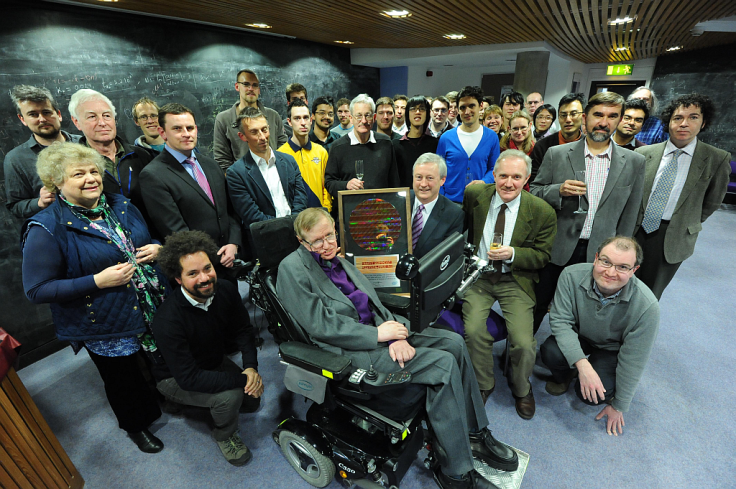Stephen Hawking Predicts 'Digital Immortality' For The Human Race

Physicist Stephen Hawking predicts humanity will someday be immortalized, not on commemorative plates or in museum exhibits, but as living beings inhabiting a digital domain of disembodied minds.
Speaking this week at the Cambridge Film Festival premier of a biographical film, Hawking, 71, compared once again the human mind to a computer program, running on the biological substrate of the brain as opposed to silicon and hardware. In theory, a mind trapped in the human body could be freed of its corporeal prison, of particular interest to Hawking, who was diagnosed at age 21 with amyotrophic lateral sclerosis (ALS), a debilitating motor neuron disease doctors said would quickly kill him.
"I think the brain is like a programme in the mind, which is like a computer, so it's theoretically possible to copy the brain onto a computer and so provide a form of life after death,” Hawking told reporters. "However, this is way beyond our present capabilities. I think the conventional afterlife is a fairy tale for people afraid of the dark."
The film tells the story of Hawking’s life, beginning with his childhood in Oxford to his present home in Cambridge, where he lives with the assistance of caregivers. The world's best known scientist, Hawking discusses the limitations his condition has placed on him for nearly a half-century. "Keeping an active mind has been vial to my survival, as has been maintaining a sense of humour,” Hawking says.
At the premier on Thursday, Hawking’s close friend Kip Thorne, an American physicist, paid tribute to the author of A Brief History of Time. The book, a synopsis of the universe that captured the world’s imagination, has sold 10 million copies and has been translated into 40 languages.
"I think his handicap allowed him to do science he may not otherwise have done,” Thorne said. "He is the most stubborn man I know and that stubbornness and that drive is in part motivated by his disability."
Aside from making the most of his life with trips to gentlemen’s clubs, Hawkings has inculcated a reputation as a sterling conversationalist, capable of chatting about everything and nothing, according to the film’s director, Stephen Finnigan. "[Hawking] was very different from how I imagined him to be. You expect him to be quite plain-speaking, quite academic and quite brainy, but actually you can have a laugh with Stephen Hawking,” Finnigan told reporters."I went for a curry with him this afternoon and you can chat to him about anything."
Despite a focus on possible immortality, however, Hawking reveals his true feelings about the afterlife with his latest book and autobiography, My Brief History.
Below is a video profile on Stephen Hawking's life.



























